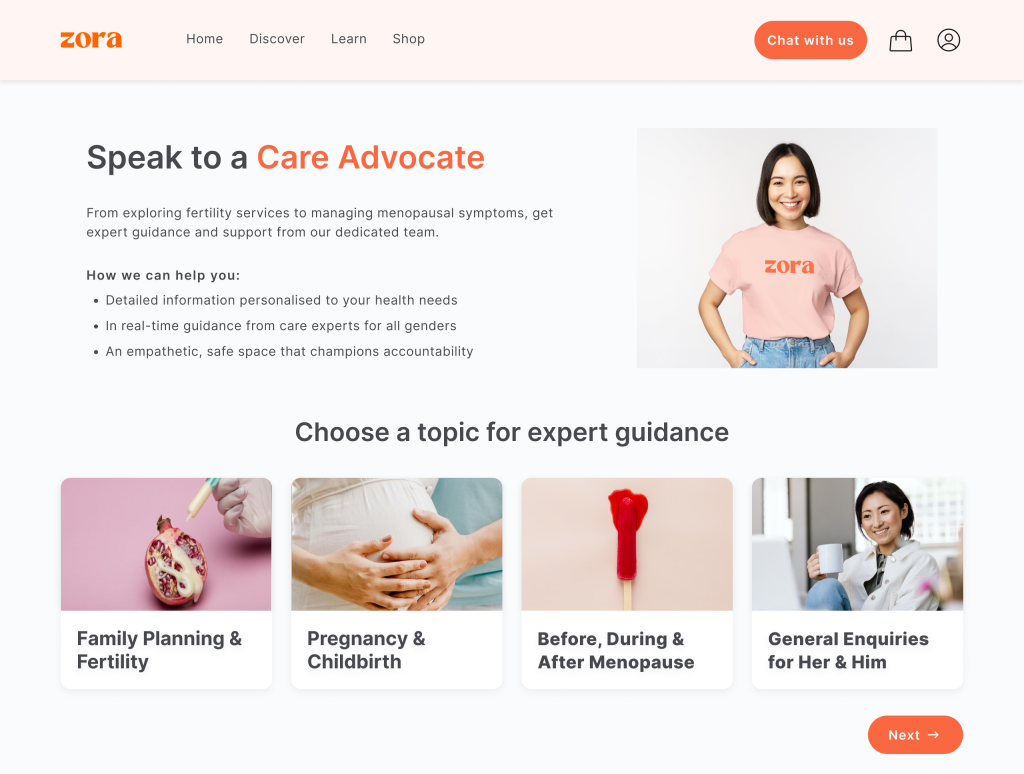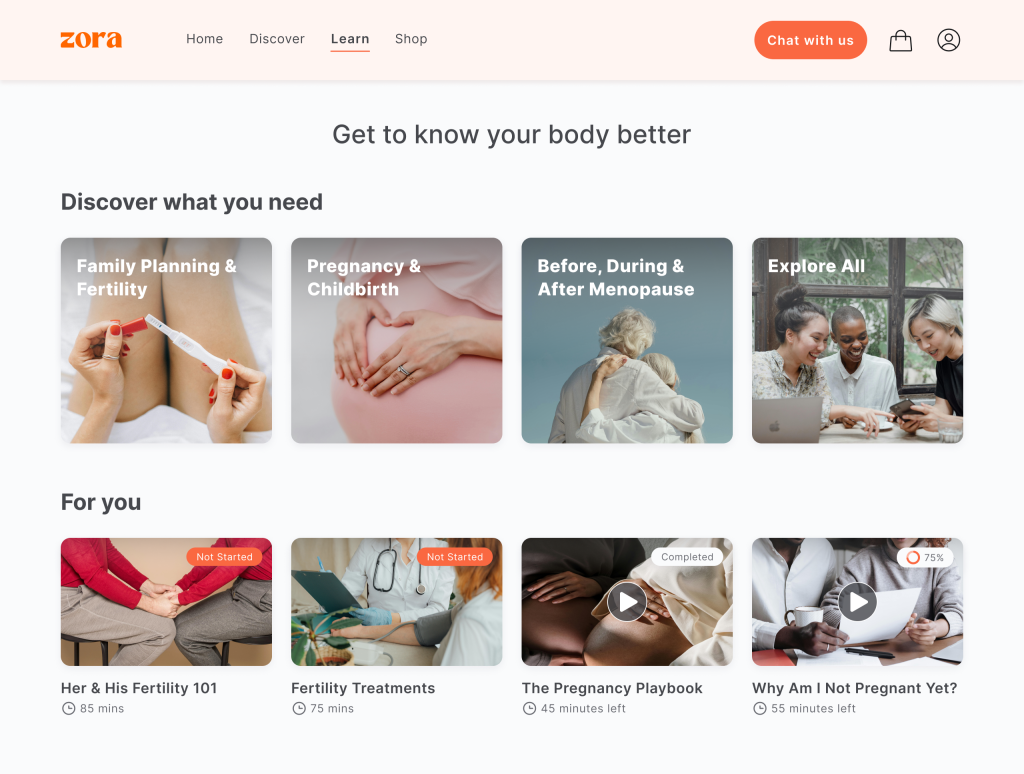“It’s about time already. When do you want to get married and have kids?” That was a question that a relative asked me, without fail, every time we met. Much to her disdain, perhaps, my answer remains the same: “I don’t want to rush to get married and have children just for the sake of it.”
It turns out I wasn’t alone: there were fewer marriages in Singapore in 2023, with the proportion of women between the ages of 25 and 49 rising from 31.2 per cent in 2013 to 35.4 per cent in 2023, and the number of babies born last year was the lowest in 50 years!
This outcome is the result of many socio-economic factors, with many respondents noting high costs and prioritising their careers over starting families.
However, we also can’t ignore the biological limitations many women will experience as they age, and given that I am just shy of turning 24, I’m worried that when I finally decide to have children on my own, it might be too late.
This spurred me to look into alternative methods to have children, leading me to learn about egg freezing. Wanting to hear more stories about women who had gone through the egg-freezing process, I started to dig deeper.
That was when I came across a viral blog post from Anna Vanessa Haotanto, the founder of homegrown femtech startup Zora Health, as her article also included photos and videos of herself administering trigger injections as part of the egg-freezing process.
When she first shared her story on social media, Anna received over 200 direct messages seeking her advice. Since then, she has spoken to more than 80 women on egg-freezing and fertility issues, with the majority of the conversations being with strangers.
Anna was surprised by the immense traction she gained, but it turned out to be a critical driver in her founding Zora Health.
“I was driven by a deep-seated commitment to empower individuals with the knowledge, tools, and support they need to make informed decisions and navigate their fertility journeys confidently,” explained Anna.
Determined to fill a gap in the fertility industry, Zora Health was pre-launched in May 2023, with Antler investing US$125,000 in the startup.
Zora Health was Anna’s “fresh start.”
If there’s anything you need to know about Anna, she is no stranger to Singapore’s startup scene. With 17 years of experience under her belt, she has built and scaled up companies and executed numerous mergers and acquisitions (M&A).
Aside from being the Managing Director of Food and Beverage (F&B) investment firms ABZD Capital and Gourmet Food Holdings, Anna also founded The New Savvy, an online financial, investment, and career platform for women, in 2015.
Since its launch, it has garnered 80,000 subscribers. Anna was also a television host for a few finance and tech-centred programmes, including a four-part documentary on Web3.
It’s safe to say that Anna is a jack of all trades, but why did she choose to enter the femtech and fertility space as her next venture?
“[At that point] I’ve worked for nearly 20 years and was ready for a break and a fresh start. I stepped down last year because we reached a significant milestone, and I was keen to explore more tech opportunities,” explained Anna.
Anna often suffered from fertility health issues, including polycystic ovary syndrome (PCOS), a chronic hormonal condition that affects one out of ten women of reproductive age—and had five surgeries last year alone.
She added that once she thought that she had perimenopause—a condition when you have early menopause, and started learning more about the symptoms. This led her to discover that there was a lack of credible resources and solutions available, spurring her to create a new solution to help those who went through similar health issues.
Navigating the complex femtech space
According to Anna, only 44 per cent of fertility treatments are done in Asia, with Southeast Asia having just three to four fertility tech companies. Although awareness of fertility-related issues has increased in recent years, knowledge gaps are still apparent, which can affect patients’ confidence in seeking treatment.
When my friends see doctors, they share their discomfort but are un-understood. It’s not because doctors don’t want to solve the problem, but rather that they don’t understand it.
We’ve spoken to about 400 women; many don’t know about the egg-freezing process. I did it five years ago, and I still didn’t know the process until I wrote my egg-freezing article.
Anna Vanessa Haotanto, founder and CEO of Zora Health
She pointed out that patients often delay seeking treatment, and it “might be too late” for them once they start taking action, referencing a friend’s experience.
“A younger friend of mine was told that she could only retrieve one viable egg. She’s only 37, so I think it’s a real problem. It’s just a problem that has never been talked about,” lamented Anna.
To make fertility treatments and consultations more accessible and transparent to patients and their families, Anna and her team created a “one-stop fertility, reproductive and family health platform.”
Rather than offering direct medical advice, Zora Health aims to be a centralised source of information for patients worldwide. From a clinical treatment concierge to an educational resource provider, the platform helps to simplify the otherwise tedious and time-consuming process for patients.
Transparency, particularly in financial aspects, is imperative to Zora Health’s operations. Anna explained that her team aims to reduce the financial burden of those seeking treatment, including patients who do not qualify for government subsidies.

Zora Health earns its revenue through two business models: the first from marketing fees from clinics, and the other from working with external corporations.
However, the team does not push their patients towards specific clinics. Instead, they provide information upfront at the patient’s request, such as the doctor’s qualifications and their treatment success rates, if any.
Eight months after its pre-launch, Zora Health secured S$1 million in funding to officially launch the platform and expand its team and global outreach. However, reaching their fundraising goal was anything but easy.
2023 was a funding winter for startups, and investors became more conservative and prudent in their investment decisions. For Anna, it took her 158 pitches to reach her target fundraising goal, and unfortunately, she also encountered sexism in the process.
“I don’t like bringing up gender issues, but the problem exists. We know that two per cent of the total funding goes to women,” Anna shared ruefully. Frustrated with the lack of results, she decided to rethink her approach.
Given that Zora Health’s operations are geared towards women, Anna reached out to several female investors, who understood the pain points from the start. As a result, 55 per cent of investors were women, with notable angel investors consisting of Cheryl Goh, founding CMO of Grab; Prajit Nanu, CEO of Nium and Åsa Lidén, former COO of Pitch.com.
Although the company has yet to break even, Anna shared that the encouragement and insights she received boosted her and her team’s confidence in providing accessible, quality care to all women, regardless of their life stories and backgrounds.
Facilitating access to treatments worldwide
Currently, Zora Health has a network of over 80 partner clinics from 16 countries, which allows the company to cater to individuals worldwide, including medical tourists seeking treatments outside of their home countries.
“A patient of ours from the United States was looking to do IVF in Malaysia, and they asked us to find a “female Muslim doctor” in Malaysia. As we have the largest database of clinics and doctors, we know how to help them,” shared Anna.
Anna attributes Zora Health’s growth to the city-state’s strategic geographical location, which gave the company an advantage in growing within Asia and beyond. She added that she and her team can maintain a global perspective while adapting to the region’s unique needs and regulations.

In July 2023, the age limit for single women to freeze their eggs expanded to 21-37 years in Singapore, leading to a twofold increase in fertility clinic sign-ups soon after. This exemplifies the increased prevalence of reproductive health issues amongst Singaporean women today.
While the team continues to connect patients and couples to clinics and medical professionals, Anna shared that the company is focusing on building more collaborations with external corporations.
Helping companies in their efforts to reduce the stigma of fertility and reproductive health at work can help them in attracting and retaining talent. As they may not have the wherewithal to fully implement their intentions, Anna and her team support them by conducting educational workshops and providing fertility health benefits for all employees.
The company is also working to improve its platform and broaden its scope of products and services beyond fertility, such as reproductive health, prenatal care, men’s health and menopause management.

Most recently, the company launched the first-ever and largest fertility provider directory with nearly 900 clinic listings and 2700 doctors globally, as well as growing a library of information on fertility treatment, currently spanning over 42 countries.
Anna has also expressed her ambition to unlock new possibilities for women’s healthcare in Asia, presenting women with choices to live without limitations. She also envisions Zora Health becoming a leading force in healthcare, known for its innovative solutions, unwavering commitment and transforming the lives of individuals around the world.
Embark on your startup journey with MAS-regulated ANEXT Bank, one of Singapore’s first digital banks for SMEs.
Featured Image Credit: Zora Health










